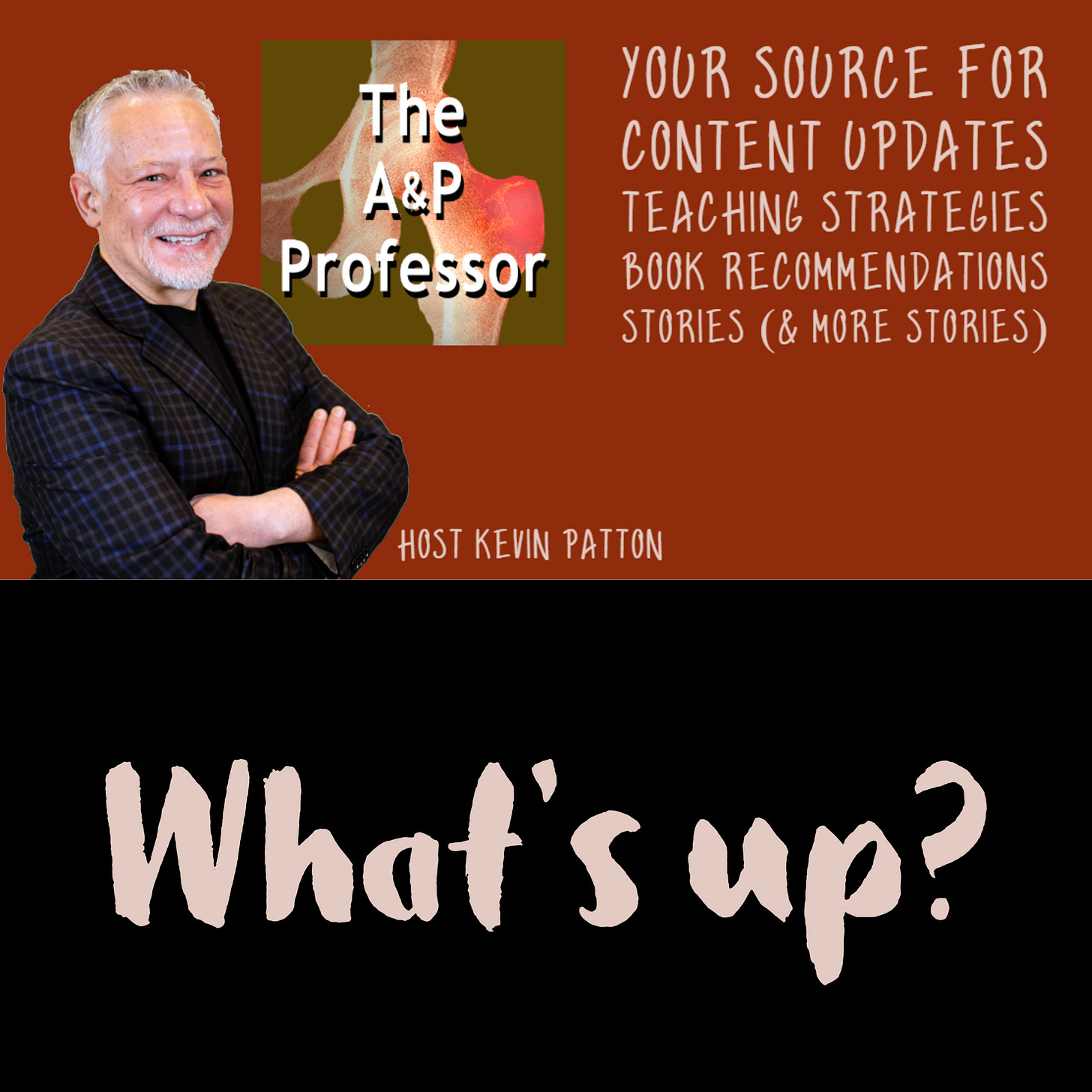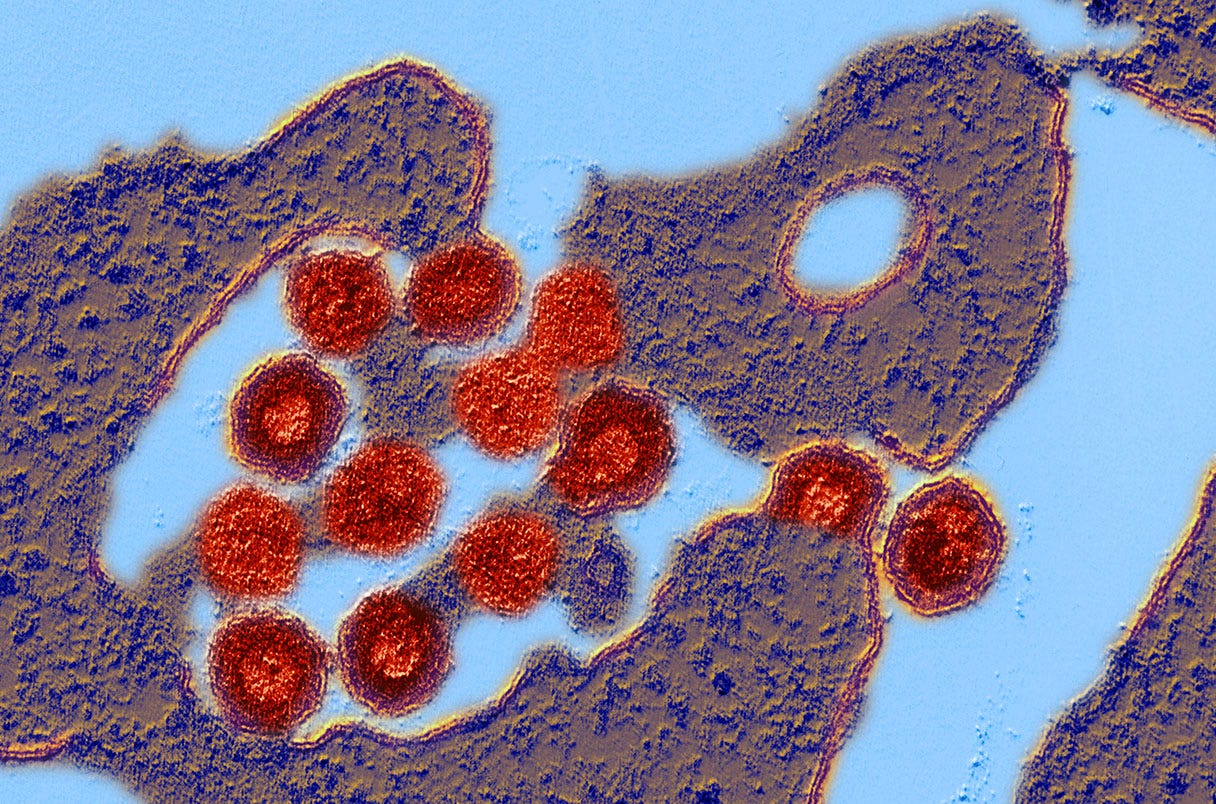Our new platform!
This is the first issue of The A﹠P Professor Science & Education Updates on Substack. Previously, several hundred updates were distributed by Revue—and before that, on the Nuzzel platform. Each of those previous platforms shut down suddenly and unexpectedly. And we pivoted.
Adjusting to a new platform takes some effort on the part of all of us. I appreciate your patience as I try to adapt what I had been doing to Substack, which has a different interface and different features.
As always, any suggestions you have for improving this newsletter are welcome!
Retroviruses, such as HERV-K (shown here in red), can permanently integrate their genetic material into human genomes DR. KLAUS BOLLER / SCIENCE SOURCE
Ancient virus may be protecting the human placenta
Pathogen that became embedded in our genome millions of years ago may ward off other viral invaders
KP: an interesting new discovery
The Top 10 Neuroscience Stories of 2022
From discoveries about the origins of multiple sclerosis to a potential new drug for Alzheimer’s disease – it has been a busy 2022 for the brain. After another huge year in neuroscience, we review 10 of the most important developments in the field.
KP: you’ll recognize some of these, but some may be new to you
Navigating Science in the Media
In today’s world, we have more information at our fingertips than ever before. While the plethora of science news presents seemingly endless opportunities for learning, the wealth of potential sources also presents a unique set of challenges. With every trending scientific topic and the social media conversation that follows, it’s increasingly difficult to sift fact from fiction. How can you successfully navigate today’s science news? Read on for helpful tips.
KP: lessons for us all
One of our best Covid-19 treatments doesn’t work anymore. What now?
Covid-19 is once again trending upward in the United States, with new cases reaching more than 450,000 and deaths climbing up to 3,000 per week. But hospitals will have to face this year’s winter surge without a valuable tool.
In late November, the Food and Drug Administration revoked its emergency use authorization for bebtelovimab, a monoclonal antibody treatment for Covid-19, because it wasn’t effective against the latest variants of SARS-CoV-2, the virus that causes Covid-19. Now, there are no monoclonal antibody treatments left that work against BQ.1 and BQ.1.1., the subvariants of the omicron variant that are currently causing most new infections.
KP: what now? indeed
No One Wants Your Cold
In some ways, the question people face is the same one they have faced the whole pandemic: How can we spend time together safely? But the question is also different now, with so many more minor viruses circulating—people might be willing to take a chance on a runny nose or a sore throat. So should you stay home? How sick do you need to be to sit out the holidays a third year in a row?
KP: I certainly don’t want it!
Are you caught up with our podcast?
Some common medical terms may be more confusing than doctors think
Medical language can sometimes stump patients. And some common sayings are straight-up head-scratchers.
Calling a patient’s neurological exam “grossly intact,” for example, might not sound so great, says Michael Pitt, a pediatrician at the University of Minnesota Medical School in Minneapolis. But it actually means that everything is normal and working as expected.
KP: I’m a big fan of either using plain language, or clearly explaining the jargon we feel that we must use
(Christopher Hopefitch/Getty Images)
We've Discovered A Subtle Genetic Imbalance That May Drive Aging
Scientists have found an extremely subtle twist in the genetics of aging cells, one that seems to make them increasingly less functional as time goes on.
Researchers from Northwestern University have revealed animals like mice, rats, killifish, and even humans show a gradual imbalance of long and short genes in virtually every cell in their body as they age.
The discovery suggests there aren't specific genes that control the aging process. Instead, old age seems to be governed by systems-level changes with complex effects. And this can impact thousands of different genes and their respective proteins.
A Popular Sweetener Has Been Linked to Increased Anxiety in Generations of Mice
Could the sweetened drinks we're consuming be making us feel a little more anxious? A new study looking at the effects of the artificial sweetener aspartame on mice suggests that it's a possibility that's worth investigating further.











